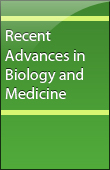


The purpose of this work is to summarize the biological methods available for assessing DNA damage in humans at present. There are several methods for determining single-strand DNA breaks, alkali-labile sites, and crosslinks, including comet assays, micronucleus assays, cytogenetics (which include sister chromatid exchange and chromosomal aberration assays), DNA repair assays, oxidative DNA damage assays (measuring oxidized bases such as 8-oxo-7, 8-dihydro-2'-deoxyguanosine), and oxidized bases. There are many factors to consider when determining the best method, including how to achieve the study's objectives, what type of DNA damage to measure, and what resources are available. Combining different techniques may also contribute to a more comprehensive understanding of DNA damage and its effects on human health. By standardizing assays and advancing technology, we will be able to determine DNA damage in humans more accurately.
Read Article